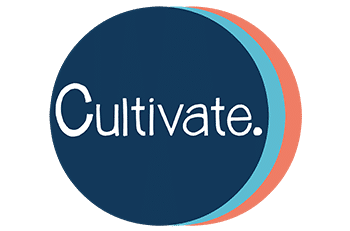Early Decision and Early Action applications are a must for students applying to competitive programs. While dates may seem far away, the deadlines for registering for the early SAT/ACT dates and submitting college essays, letters of recommendation, and applications will fly by before you know it. You will find that much of the college application timeline for early decisions will take place in the first semester of the school year, so we’ve put together a quick list of important dates and deadlines to help you out.
It’s important to note that ACT and SAT registration/testing dates change from year to year, so it is important to check the updated testing dates online. Below are the national testing dates for the 2022-2023 school year:
July/August
July 29: Registration deadline for August 2022 SAT.
Early August: Identify at least 3 teachers you’d like to ask for letters of recommendation as well as 2 mentors. Have a working resume ready for them to review. Once school begins, you should ask recommenders (in person) to write a letter for you. Follow up with a thank-you email.
August 1: The Common Application and the college-specific supplements are updated for the admissions “season.”
August 5: Deadline for September 10th ACT date.
Mid-August: Begin filling out the Common App and add colleges to “My Colleges” list. Review supplements for all colleges on your list to assess what additional information/essays may be required.
August 16: Late Registration for August 27th SAT date.
August 19: Late Registration for September 10th ACT.
August 27: August 27th SAT date.
End of August: Submit rolling admissions applications (some high entrance rate state schools) if you are satisfied with your standardized test scores. Rolling admissions applications will typically provide you an admissions decision in 6 weeks or so.
Cultivate. Check-In:
- Colleges use social media as much as you do! Clean up accounts so you’re presenting your best self to admissions officers. Follow the colleges you’re applying to, and comment positively when you can!
- Going on college tours during the month of August is a great way to narrow your college list!
- Get assistance from your Cultivate. Coach on making strategic decisions about applying Early Decision and/or Early Action.
- Seniors applying EA/ED should attempt to make the August SAT their last test date. Remember, standardized test scores can take 1-4 weeks to be delivered to your chosen colleges.
September
Beginning of September: Get clarity from your school guidance counselor on the protocol for requesting transcripts and letters of recommendation.
Share this information with your Cultivate. Coach. Make sure you also bring a copy of your transcript into your Cultivate. session, if you haven’t yet.
September 2: Registration deadline for the October 1st SAT and SAT Subject Tests.
September 10: ACT test offered nationwide.
Middle of September: Finalize your “Activities List” and “Awards and Honors” section of the Common App with your Cultivate. Coach. Also, begin drafting supplemental essays for Common App schools.
September 16: Registration deadline for October 22 ACT.
September 20: Late registration deadline for October 1 SAT and SAT Subject Tests.
September 30: Late registration deadline for October 22 ACT.
End of September: Finalize college list and main essay with your Cultivate. Coach. Request transcripts and upload letters of recommendation from your school.
Cultivate. Check-In:
- During September you should be preparing for the remaining standardized tests, finalizing your college list, working on supplements, Early Decision, and Early Action applications.
- It is best to wait until after you have finalized your college list to send score reports from SAT/ACT tests. These tests may offer free score reports, but doing this does not allow you to review your score before the report is sent. Cultivate. Coaches want you to be as strategic as possible when sending scores, so get with your coach to decide which scores to send and when.
- If your school hosts college nights/fairs or brings in specific college admissions officers, attend as many as you can! Speaking face to face with an admissions officer proves your “demonstrated interest” in their school. These folks are typically the first eyes that look at your application, so shake hands, make eye contact, and send a follow-up thank you email (with your resume attached!). Many private schools take into account your level of interest in their decision-making process, so make a good impression!
October
Early October: Many schools will require applications to be received early to qualify for college-specific/institutional scholarships. Check each of your schools and fill out any additional scholarship applications if necessary.
October 1: FAFSA (financial aid form) available on the FAFSA website. Parents, gather up your previous year’s tax documents. Being prepared is key! The process should only take about 30 minutes.
October 1: CSS Profile (financial aid form) available on College Board website to be considered for non-federal student aid.
October 1: SATs and Subject Tests. Last possible test date for scores to arrive at ED/EA schools, UC and Cal State schools, and most honors college programs.
Mid-October: Send thank you letters to your counselors, teachers, and “other” recommenders for writing you letters of recommendation.
Mid-October: A few colleges now require Early Action applications to be sent by mid-October. Think University of North Carolina Chapel Hill, University of Georgia, and a few others. Check your college list to see if this is a date you must meet!
October 22: ACT test offered nationwide.
End of October: Finalize and send Early Decision and Early Action applications as well as test scores, transcripts, and letters for these apps.
Cultivate. Check-In:
- Keep track of college fairs in your area. Attend and follow up with admissions officers afterward.
- Continue mindful social media presence.
- Begin to brainstorm ideas for Regular Decision application supplements.
November
Beginning of November: Double-check application(s) and press send!
November 1: Deadlines for Early Decision and Early Action. Check Common App for specific schools.
November 15: Deadlines for Early Decision and Early Action. Check Common App for specific schools.
Mid-November: Send in first-quarter grades from senior year to Early Decision and/or Early Action schools. Although first-quarter transcripts are not required for all ED/ EA programs, if they are strong, they can have a positive impact on your admission decision.
November 1-30: Applications for University of California schools and California State schools are open and must be submitted by Nov 30th!
Cultivate. Check-In:
- Portfolios may be required for certain programs including artistic programs or very specific majors (think University of Michigan’s Ross School of Business). Make sure to book extra time with your Cultivate. coach to complete all requirements by the required dates.
- Be mindful of Early Decision and Early Action dates! Put reminders on your phone and share dates with parents as well so that all apps go out on time.
- Continue to follow up with admissions counselors with whom you’ve communicated previously about interest in their college. Express excitement, mention new achievements and inform them when you’ve sent your application. It’s all about building relationships!
December
Beginning of December: Check your email daily! Colleges will often send out emails notifying you that your application has been submitted.
They may also provide you an ID and Password to log into their “Check Admission Status” page on their admissions website. Follow the links to check your admissions status and share this with your Cultivate. Coach.
End of December: Most ED/EA programs will notify students of acceptance by this time.
Cultivate. Check-In:
- Understand that there are three possible outcomes of an ED/EA decision. Students will either be admitted, denied, or placed in the “Regular Decision” pool of applicants. Meet with your Cultivate. Coach to discuss strategies and options once you’ve received your decision.
- If you are admitted Early Decision, you must call/email each school you have already applied to (whether you have received an admissions decision or not!), and let them know you’ve been admitted ED to another school and to rescind your application. Thank them for their time and consideration, acknowledging their institution’s prestige. Suggest you may look to them for graduate study.
- Pat yourself on the back! You’ve reached the end of your first semester as a Senior AND you’ve applied to many of your colleges. Enjoy the Winter break and come back refreshed for any remaining Regular Decision schools.
Prepare for Early College Admissions Decisions with Cultivate Academics
With so much to do in such a short period of time, applying for EA/ED on college applications can feel overwhelming. But you don’t need to do it alone. Here at Cultivate Academics, we empower students and families to thrive through their high school experiences by supporting self-awareness and employing a data-driven college admissions strategy. This mentorship style of college admissions counseling creates the best high school student and the most authentic college applicant.
Contact Cultivate today to speak with a college admission counselor and learn more about how we can help your student prepare for early decision college applications.

